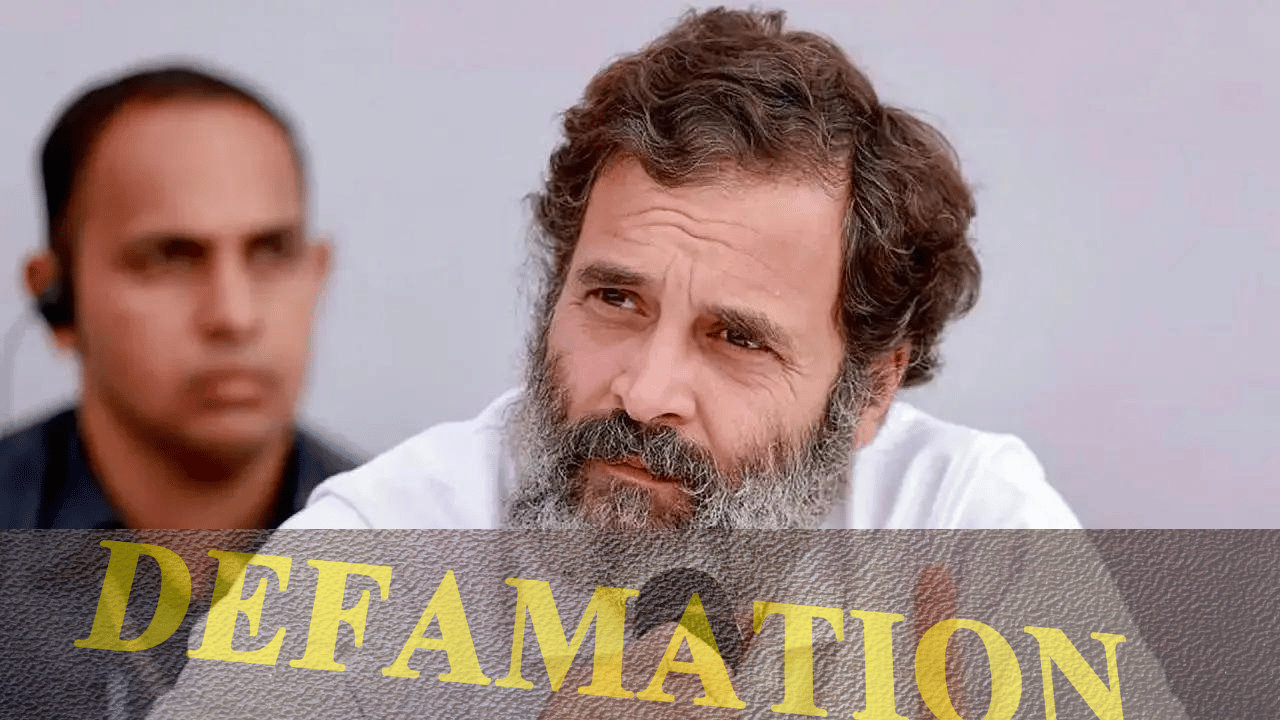The Surat Sessions Court has dismissed Rahul Gandhi’s application seeking a stay on his conviction in a defamation case related to his remarks about the surname ‘Modi’.
Gandhi had made the comments during a political campaign in Karol in April 2019, stating that “why all thieves share the Modi surname”. BJP MLA and former Gujarat minister Purnesh Modi had filed a complaint against Gandhi under Sections 499 and 500 of the Indian Penal Code, alleging that his remarks defamed all people with the surname ‘Modi’. The defamation case had led to Gandhi’s disqualification as MP of Lok Sabha and his subsequent conviction and sentencing to two years in jail.
However, his sentence was suspended and he was granted bail to enable him to move an appeal against his conviction within 30 days. The Surat Sessions Court had granted him bail till the disposal of his appeal on April 3. Gandhi’s membership in the Lok Sabha won’t be restored as a result of the Sessions Court’s recent decision to deny his request for a stay of his conviction, subject to the LS Secretariat issuing a notification in this regard.
The case has been a subject of controversy and debate, with supporters and opponents of Gandhi taking different positions on the issue. Some argue that the case is an attempt by the ruling BJP to silence opposition voices, while others maintain that Gandhi’s comments were defamatory and merit punishment. Regardless of one’s stance on the matter, the case highlights the complex and often contentious relationship between politics and the law.
The case also raises important questions about the limits of free speech in a democratic society. While freedom of expression is a fundamental right guaranteed by the Indian Constitution, it is not an absolute right and must be balanced against other considerations such as public order, morality, and the rights of others. In the context of the defamation case, the question is whether Gandhi’s comments about the ‘Modi’ surname constituted legitimate political criticism or crossed the line into defamation and personal attack.
Some argue that Gandhi’s comments were a legitimate criticism of the Modi government’s policies and actions, and that he was using satire and hyperbole to make a point. They point out that the use of satire and exaggeration is a common feature of political discourse and that politicians are often expected to engage in sharp criticism and rhetoric. They also argue that the defamation case is an attempt to stifle dissent and criticism of the government, and that it sets a dangerous precedent for free speech in India.
Others, however, maintain that Gandhi’s comments were defamatory and crossed the line into personal attack. They argue that his comments were intended to demean and insult all people with the surname ‘Modi’, and that they had no legitimate political purpose. They also point out that while free speech is important, it must be balanced against other rights, such as the right to reputation and dignity. They argue that the defamation case is a necessary means of protecting these rights and that it sends a message that politicians cannot make unfounded and defamatory allegations without consequence.
The case also highlights the role of the judiciary in upholding the rule of law and ensuring accountability. While some may argue that the case is politically motivated and aimed at silencing opposition voices, it is important to recognize that the judiciary has a duty to uphold the law and protect the rights of all citizens. The fact that Gandhi has been granted bail and is able to appeal his conviction is evidence of the independence and impartiality of the judiciary in India.
Killings of Atiq Ahmad and Brother Raise Concerns









Leave a Reply